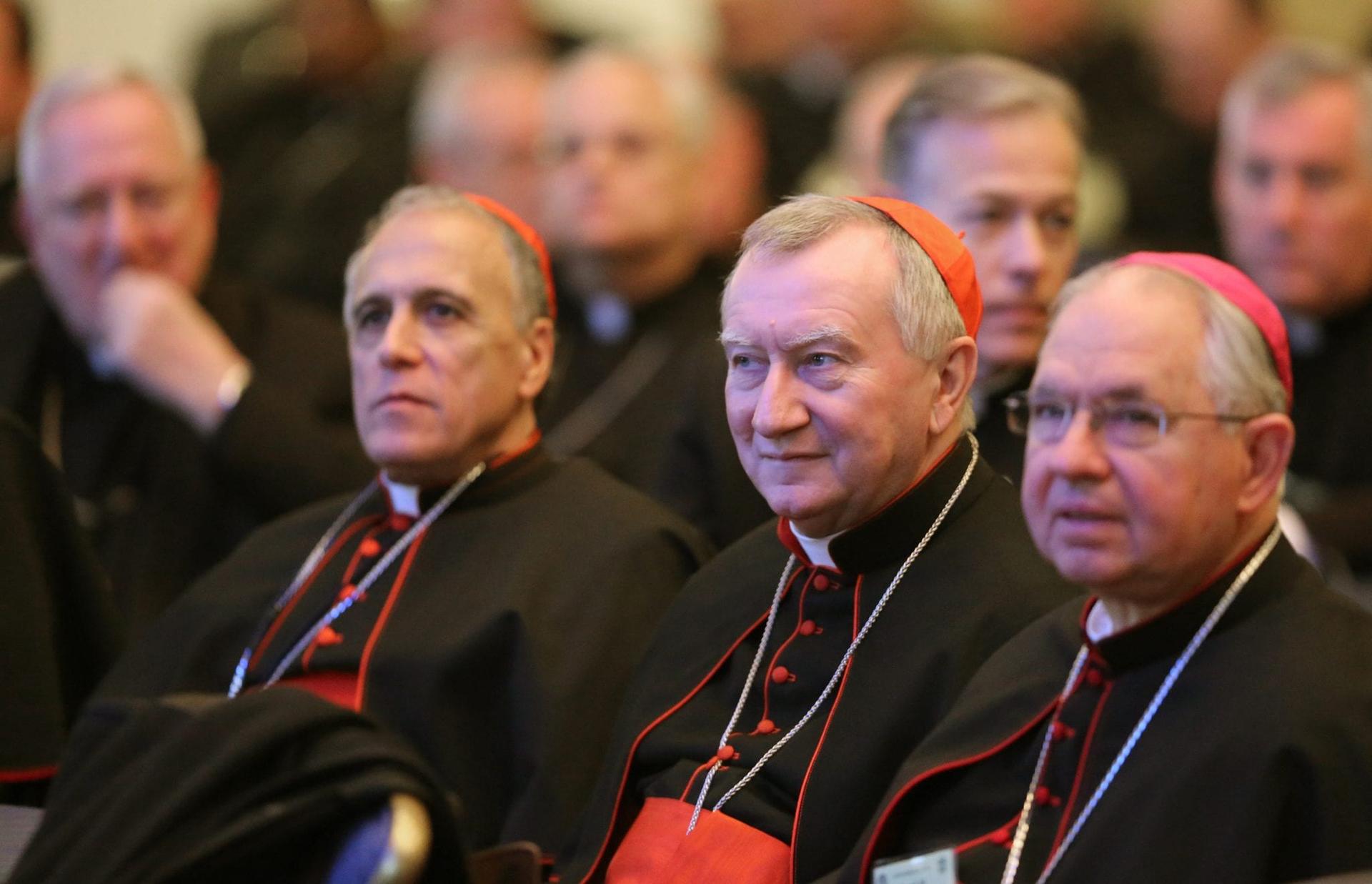BALTIMORE – In his first presidential address as head of the United States Conference of Catholic Bishops (USCCB) on Monday, Cardinal Daniel DiNardo said the nation “seems more divided than ever…but our role continues to be witnessing to the Gospel.”
DiNardo, without ever mentioning President Donald Trump by name, enumerated specific areas of concern, as has been reflected by the more than 200 statements released by the conference over the past year.
“Divisions over health care, conscience protections, immigration and refugees, taxes, abortion, physician assisted suicide, gender ideologies, the meaning of marriage, and all the other headlines continue to be hotly debated,” he said.
DiNardo, the archbishop of Galveston-Houston, was elected last November for a three year-term, and received widespread applause as he spoke of the bishops’ work on behalf of the unborn and immigrants.
“Our response must be civility and love. My friends, civility begins in the womb,” said DiNardo. “If we cannot come to love and protect innocent life from the moment God creates it, how can we properly care for each other as we come of age? Or when we come to old age?”
In a move that linked the issues of immigration to the pro-life concerns of the conference, DiNardo added: “We join our Holy Father in declaring that a pro-life immigration policy is one that does not tear families apart; it protects families. Such a policy includes an equitable path to legal protection.”
DiNardo also mentioned the recent uptick in violence in the nation, from the recently racially motivated events of Charlottesville, Virginia to the mass shooting in Las Vegas in October that killed 59 individuals and injured over 500 others.
In one of the most pointed lines of his address, DiNardo echoed the bishops’ recent plea for a national debate on America’s gun policies.
“The time is long past due to end the madness of outrageous weapons — be they stockpiled on a continent or in a hotel room,” he said.
At a midday press conference, DiNardo reiterated the bishops’ long-standing “common sense” approach to guns and its desire to ban “juiced up” weapons, but failed to say whether the conference would pursue new initiatives on this front.
Starting off the first day of the general assembly, Archbishop Christophe Pierre, apostolic nuncio to the United States, reflected on Pope Francis’s recent remarks to CELAM, the Latin American episcopal conference, asking for bishops to possess “the passion of evangelization.”
“What are we as bishops truly passionate about?,” asked Pierre. He then proposed three areas of focus: “our youth; the mission of evangelization; and the Lord Himself.”
Pierre said it was the task of bishops to make the faith more attractive for young people.
“The beauty of Catholicism – in art, architecture, music, and in its liturgical, spiritual and intellectual tradition – cannot be hidden but must be re-proposed,” said Pierre.
He also said strong leadership on behalf of bishops, such as the responses to Charlottesville, is part of offering a compelling witness to the faith.
“Your strong leadership sends a message to a young people of a Church that is prophetic and filled with good-hearted people of every race and tribe!” said Pierre.
Francis named Pierre as the apostolic nuncio to the United States in April 2016. He has worked for the Holy See’s diplomatic services since 1977, having previously served in Uganda, New Zealand, and most recently Mexico, among numerous other countries.
While warning that the challenges facing the Church and country are great, Pierre said “there are signs of hope – of growth – of a new springtime for evangelization. I repeat, this can be a Kairos moment for the Church in America.”
The latter part of the morning was spent with updates from the committees on divine worship, pro-life activities, migration, and the October 2018 Synod of Bishops, which will focus on young people, the faith, and vocational discernment.
Cardinal William Levada, former prefect of the Congregation for the Doctrine of Faith, questioned whether or not the preparatory document for the upcoming synod, released by Francis in January, adequately addressed the “ignorance of the faith” among young people.
In response, DiNardo assured him that poor catechesis was a growing problem that the conference hopes is addressed by the synod next October.
Cardinal Timothy Dolan, archbishop of New York and head of the outgoing head of the pro-life committee, highlighted the recent failures to advance physician-assisted suicide legislation as a victory for the conference but said states must continue to be vigilant on this front. He also said the conference is working with congress to pursue potential nationwide legislation on this front, including working with Democrats in congress who are not “with us on abortion,” but oppose the practice of assisted suicide.
The last time the U.S. bishops met formally was in June 2017. Many, however, were on hand for the July 2017 Convocation of Catholic Leaders in Orlando, Florida to discuss the application of Francis’s 2013 apostolic exhortation “The Joy of the Gospel” in the American context.
The 2017 fall assemby will continue in Baltimore through Wednesday.
Stay tuned for Crux’s latest news and updates from the USCCB fall assembly, where Crux’s national correspondent Christopher White is providing ongoing coverage. Follow him on Twitter @CWWhite212 and visit Crux for daily updates and interviews from Baltimore.












